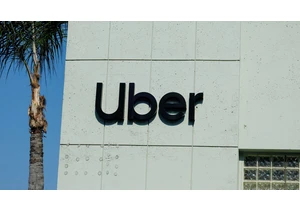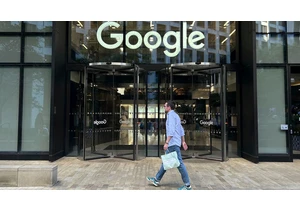This article is about one of the honorees of Fast Company’s first Next Big Things in Tech awards. Read about all the winners here. In January 2020, CRISPR startup Sherlock Biosciences was in the middle of working on CRISPR-based tests that could deliver lab quality testing at home for common illnesses like flu or sexually transmitted infections like chlamydia or gonorrhea. When COVID-19 struck, the company quickly got to work on a lab test for it. Within two months, the company submitted its CRISPR-based test to the Food and Drug Administration for emergency use authorization. In May, the FDA gave its authorization, marking the first time the agency had signed off on CRISPR technology. It was a landmark moment for Sherlock, which was founded in 2019 to use CRISPR in diagnostic testing, and for the cutting edge technology, which was first discovered in 2013 and almost immediately hailed a breakthrough. CRISPR refers to a biological process for editing genes using a repetitive DNA sequence and an enzyme called Cas-9. Since its discovery, scientists have been busy exploring how CRISPR can be used in humans to cut out genetic code for disorders like sickle cell and diseases like HIV. But these use cases will take years to make their way into medical practice. In the meantime, companies are putting CRISPR to work in contexts that could have an impact on human health faster, including Sherlock Biosciences and its CRISPR-based COVID-19 test. The Sherlock test uses two enzymes called Cas-12 and Cas-13, but instead of being able to edit DNA, these can target the DNA or RNA sequences in a specific virus and insert a readable signal. The result is a very reliable diagnostic. Molecular PCR tests, which can take as little as an hour to process, are considered the gold-standard in testing and have been the most-used test during the COVID-19 pandemic. Sherlock wanted to develop a faster test that was as good as PCR and potentially more widely available. Its first iteration was a two and a half hour process with multiple steps that could only be used in laboratories with a special certification. As a result, Sherlock Biosciences’s test didn’t sell well. “The test that we brought to market really was not competitive against PCR tests,” says Sherlock Biosciences CEO Bryan Dechairo, “So it was more of a demonstration that we could do it.” But the CRISPR-based technology still has advantages worth exploring, particularly in the form of an at-home test. At present, there are only two types of at-home COVID-19 tests that deliver rapid results: antibody tests and antigen tests. Both antibody tests and antigen tests, while useful, are not as accurate as PCR tests. At-home PCR tests have to be sent out to a lab and can take days, if not longer, to get a result. In contrast, Sherlock’s at-home test results are as sensitive and specific as a PCR test and you could get results within an hour. Sherlock’s test would allow people to take very reliable tests before they go to work, school, or some other event. Knowing whether or not you have COVID-19 is a powerful tool in enabling people to self-quarantine, thereby reducing their opportunity to spread the virus. Now, the company is working with the World Health Organization, the Bill and Melinda Gates Foundation, and Open Philanthropy to develop this disposable at-home test and an at-home testing device that can run different types of tests. More diagnostics to come Along with its at-home COVID-19 test, Sherlock has developed a test that uses synthetic biology to detect multiple illnesses, like RSV, COVID-19, and flu at the same time. That test, called INSPECTR, can also quantify how much virus is present. This test would also allow people to get highly accurate results at home within an hour. In addition to at home tests, Sherlock is developing a test using its INSPECTR technology that works with Binx, a testing device used at pharmacies and doctor’s offices, that can deliver results in less than 30 minutes. The goal is to launch these tests globally next year. In the coming years, tests like Sherlock’s will help families to get information about their health quickly and conveniently (and, with any luck, inexpensively), enabling them to make better choices about when to keep family members at home—an important tool in the ongoing fight against COVID-19.
Connectez-vous pour ajouter un commentaire
Autres messages de ce groupe

In a time where tariff price hikes are invading seemingly every

Remember the viral “Ice Bucket Challenge” of 2014? Over a decade later, it’s back—

The U.S. Federal Trade Commission on Monday sued Uber Technologies, accusing it of signing up some Uber One subscribers without their knowled

As Big Tech kicks off its quarterly earnings season this week, the industry’s bellwether companies have been thrust into a cauldron

Weeks ahead of his death, Pope Francis dedicated this month’s prayer intention to

Remember when TikTok went nuts for “Dubai chocolate”? Well, that fervor is now causing an international shortage of pistachios.
The trend took off in 2023 when food reviewer Maria Vehera

Google will confront an
